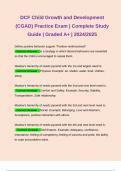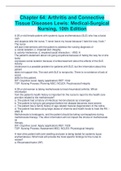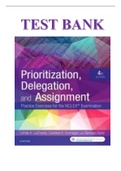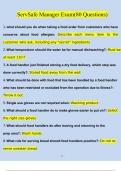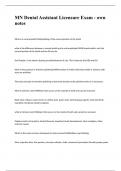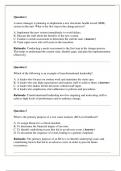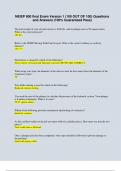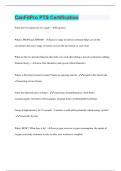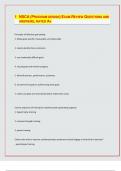Exam (elaborations)
DCF Child Growth and Development (CGAD) Practice Exam | Complete Study Guide | Graded A+ | 2024/2025
- Course
- Institution
DCF Child Growth and Development (CGAD) Practice Exam | Complete Study Guide | Graded A+ | 2024/2025 DCF Child Growth and Development (CGAD) Practice Exam | Complete Study Guide | Graded A+ | 2024/2025 DCF Child Growth and Development (CGAD) Practice Exam | Complete Study Guide | Graded A+ | ...
[Show more]
